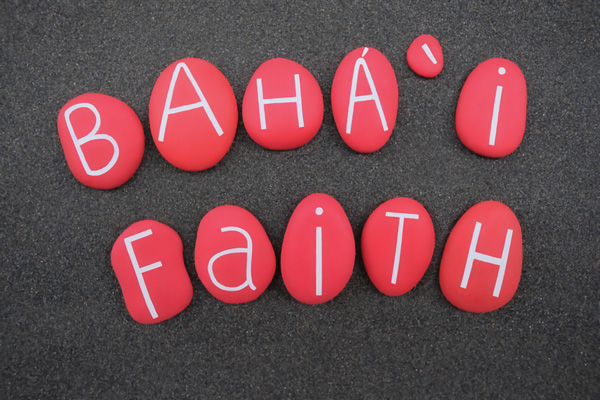Bahá’í estate planning, like estate planning for many of the world’s major religions, must be undertaken with a careful eye on sacred law and customs. For those unfamiliar with the Bahá’í faith, it is a religion with roughly 8 million followers worldwide, 150,000 of whom are living in the United States. While the roots of the Bahá’í faith are in Islam, the religion has its own writings, teachings, customs, and laws that are essential to its members.
Attorneys performing estate planning duties must be familiar with Bahá’í customs relating to wealth generation in life, medical directives and organ donations, funeral customs, bequests after death, and Huququ’llah. These issues are of no small consequence, as Bahá’í law teaches that leaving a will is a spiritual duty, and that failure to do so is considered disobedience of a divine obligation. Estate planning is so serious, in fact, that Bahá’í laws even require that specific phrases be added to a will for it to be compliant (such as a Statement of Faith and Huququ’llah).
Bahá’í Estate Planning Principles Begin in Life
There are important ties between how a member of the Bahá’í faith lives and how that person plans for death. For example, while Bahá’í members do have personal discretion as to how their assets are distributed upon death, observance of Bahá’í law in estate planning is mandatory.
It is also important for the practitioner to understand that under Bahá’í law, both extreme poverty and extreme wealth are frowned upon. This can be observed in the practice of Huququ’llah (discussed in detail below), which essentially ensures that wealth is distributed among all of the religion’s members.
Bahá’í estate planning should also recognize that in the Bahá’í faith, death is viewed as a “messenger of joy”. Attorneys working on estate plans should recognize as much and treat a member’s death planning with the reverence it deserves.
Medical Directives and Organ Donations in the Bahá’í Faith
Two of the most important estate planning considerations for any person, including those of the Bahá’í faith, are medical powers of attorney/medical directives and organ/tissue donations. Here, as elsewhere in Bahá’í estate planning, religious principles must be observed.
For instance, when it comes to appointing a medical power of attorney, that person must be familiar with Bahá’í customs and laws. Members of the Bahá’í faith are not generally opposed to the removal of life support, but it’s important that one’s religious and personal preferences are considered, as set forth in a living will.
The Bahá’í faith views the practice of organ and tissue donations as a form of charity. There are no preferences for transplantation or medical research — both are allowed. Again, what is important is that the decedent’s wishes are honored.
Huququ’llah in Life and in Death
Bahá’í estate planners must understand the importance of Huququ’llah, or Right of God. Huququ’llah is a mandatory donation (or debt) to the Bahá’í faith. While the debt can be paid during life, any unpaid debts are traditionally calculated at the time of death. That’s why it is so important for estate planners to understand this concept and include it in the member’s will.
At its core, Huququ’llah is a mandate that 19% of one’s excess wealth belongs to God. This is not a time for estate planners to round up to 20% or down to 15% to make for easy math. Under Bahá’í law, there is significance to the precise calculation of 19%.
In making these calculations, however, Bahá’í estate planners must understand the specifics of this practice. For example, some assets are exempt from Huququ’llah — things like one’s home, necessary home or business furnishings, and agricultural equipment. All other assets are considered excess wealth, including gifts and inheritances. Husbands and wives can make the Huququ’llah payment jointly. Also, Huququ’llah should be paid before the remainder of the decedent’s estate is distributed or divided, but funeral and burial costs may be deducted, and other outstanding debts should be settled first.
All U.S.-based Huququ’llah payments are made to the Bahá’í Huququ’llah Trust located in Mayfield Village, Ohio. This is a public charity that qualifies as a tax-exempt organization.
Bahá’í Death and Funeral Planning
Bahá’í customs are very specific about how one’s body should be handled upon death. For example, the decedent’s body should never be cremated or embalmed and must be wrapped in a white cotton or silk sheet. An engraved Bahá’í burial ring should be placed upon the decedent’s finger and the body placed in a durable casket – preferably one made of crystal, hard stone, or some sort of hardwood. If possible, the body should be buried within one hour’s traveling distance from where the member passed away. At a Bahá’í funeral, specific prayers for the dead must be recited.
Even though these rituals are all part of Bahá’í customs, they should still be explicit in the member’s will. This not only ensures compliance with Bahá’í law but also shows that the decedent took the spiritual duty of Bahá’í estate planning seriously.
Bahá’í estate planning is not a task for just any attorney. If you are a member of the Bahá’í faith and wish to talk to a practitioner with knowledge and experience of Bahá’í laws and customs, visit our estate planning services page and use the “Get in Touch” form to contact us.

